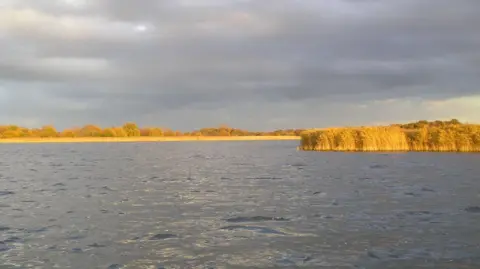Anglers join researchers to tackle algal blooms
 Steve Harper
Steve HarperAnglers are working alongside academics on a project to tackle toxic algal blooms.
The Prymnesium blooms can occur on the Broads, producing toxins that can lead to mass fish kills and have a knock-on effect on the angling industry.
The University of East Anglia, the Broads Authority, and the Norfolk pike angling community are working to find solutions to prevent its harmful effects.
"We are making significant strides in understanding and heading off harmful algal blooms," said Prof Rob Field, who is pro-vice chancellor for the faculty of science.
"This research is crucial for the future of the Broads' ecosystem and economy."
The initiative has received strong support from Norfolk's angling community, including a donation of about £4,000 towards the research effort.
John Currie, chairman of the Norwich and District Pike Club, said: "Local anglers well know the devastating effects caused by a toxic Prymnesium bloom and the negative effects on the whole ecosystem."
 Rob Field/UEA
Rob Field/UEAThe university will use laboratory work and field studies to identify specific locations at risk of the algal blooms and what factors can cause them.
Andrea Kelly, the Broads Authority's environment policy advisor, said: "Preventing Prymnesium algal blooms will help protect populations of fish, Broads angling and improve our management of the navigation."
Follow East of England news on X, Instagram and Facebook: BBC Norfolk or BBC Suffolk.
